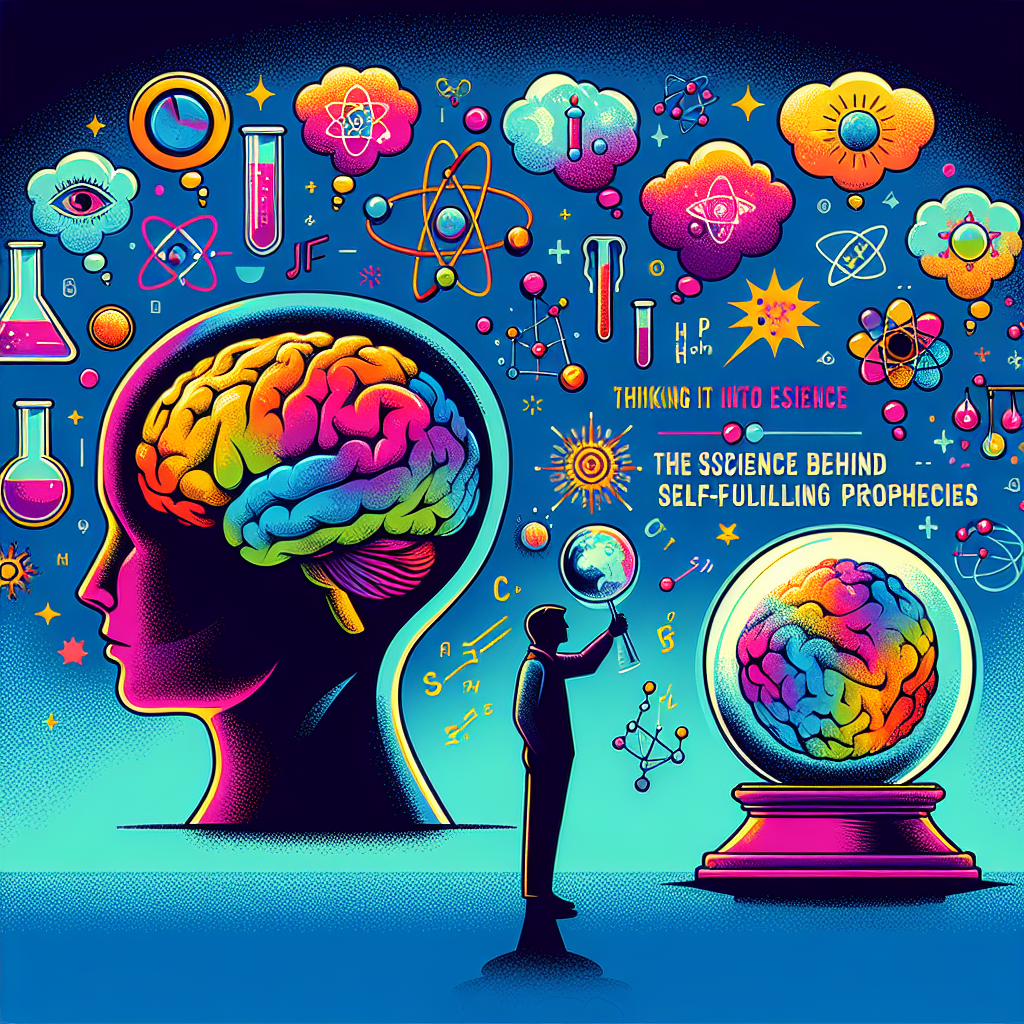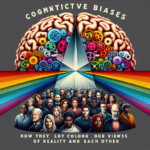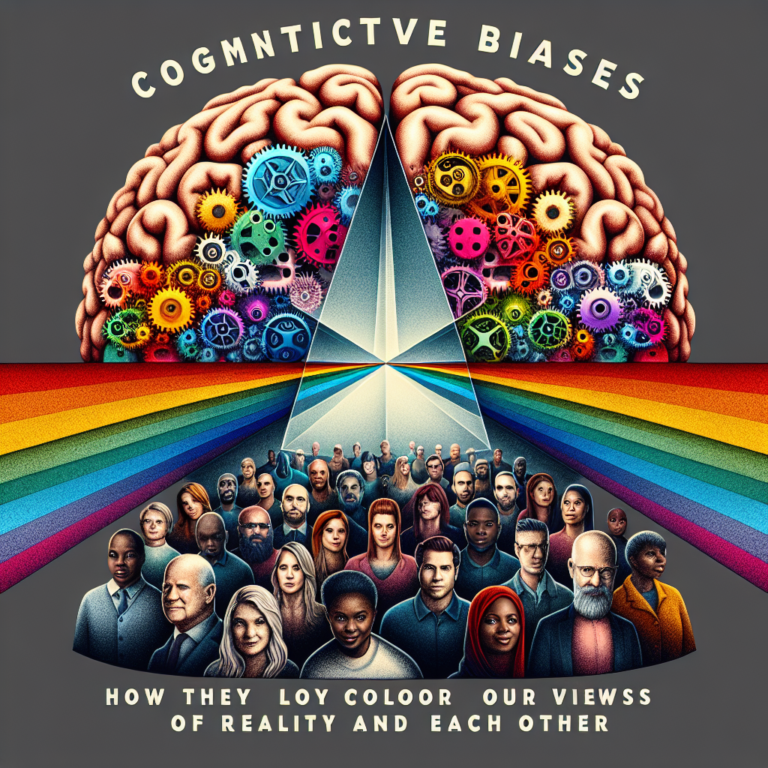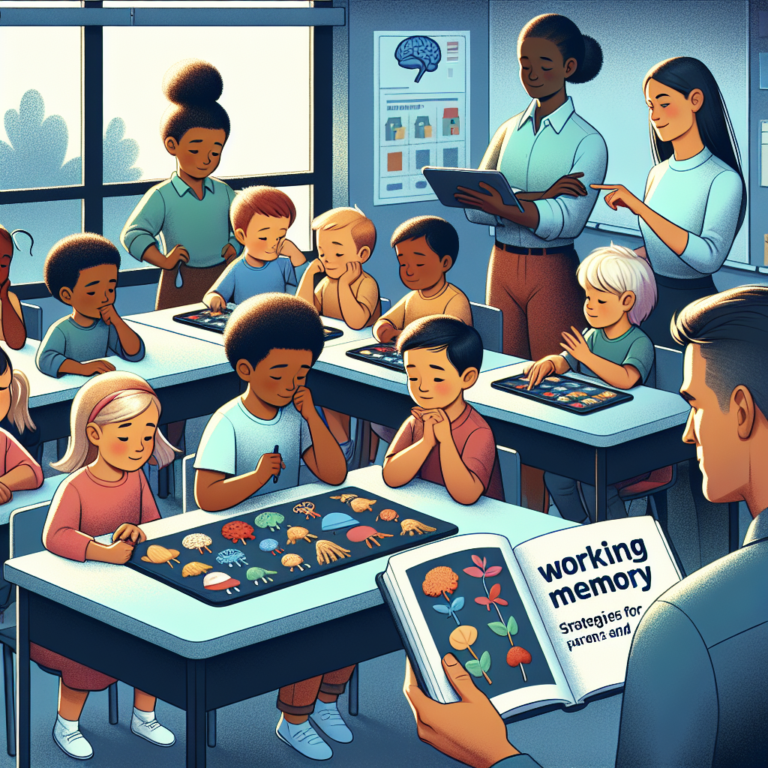
Introduction
Have you ever noticed how your expectations shape your reality? The phenomenon of self-fulfilling prophecies suggests that our beliefs and thoughts can materialize into tangible outcomes, often in ways we least expect. This article, Thinking It Into Existence: Unpacking the Science Behind Self-Fulfilling Prophecies, delves into the fascinating interplay between belief and reality, revealing how our perceptions can shape our futures.
In an age where mental health and the power of positive thinking are emphasized more than ever, understanding self-fulfilling prophecies becomes not just a psychological curiosity but a practical toolkit for personal empowerment. Let’s explore the science behind this intriguing concept, its applications in various fields, and how we can harness this knowledge to better our lives.
The Foundation of Self-Fulfilling Prophecies
What Are Self-Fulfilling Prophecies?
At its core, a self-fulfilling prophecy is the phenomenon where a belief or expectation brings about its own fulfillment. For example, if you expect to perform poorly on an exam, your anxiety might prevent you from studying effectively, thus reinforcing the expectation of failure. This cycle is central to understanding how our thoughts can shape our experiences.
Origins of the Concept
The term was popularized by sociologist Robert K. Merton in 1948, who illustrated how societal expectations can influence individual outcomes. His work highlighted the broader social implications of self-fulfilling prophecies, inviting further exploration across numerous fields, including psychology, education, and economics.
The Psychology Behind Self-Fulfilling Prophecies
Cognitive Dissonance and Confirmation Bias
Two cognitive phenomena play a critical role in self-fulfilling prophecies: cognitive dissonance and confirmation bias.
Cognitive Dissonance: This occurs when our beliefs are contradicted by our actions, creating discomfort. To resolve this, we might alter our beliefs to match our behaviors, thus fulfilling the initial prophecy.
- Confirmation Bias: This is our tendency to seek and interpret information that confirms our existing beliefs. In the context of self-fulfilling prophecies, it means we are more likely to notice evidence that supports our expectations, further entrenching them.
Case Study: The Educational Impact of Expectation
One of the most cited examples in educational settings involves the "Pygmalion Effect," characterized by a study conducted by Rosenthal and Jacobson in 1968. In this study, teachers were informed that certain students were expected to excel based on a fictitious test. By the end of the school year, those students had indeed performed better than their peers.
Relevance and Analysis
This case study exemplifies how teacher expectations can shape student outcomes. When educators believe in their students’ potential, they invest more time and energy, directly influencing the students’ academic performance. This highlights a powerful implication: our expectations significantly impact the capabilities of those around us.
Harnessing the Power of Self-Fulfilling Prophecies
Practical Applications in Daily Life
Understanding the mechanics of self-fulfilling prophecies empowers us to consciously direct our thoughts towards positive outcomes.
In Personal Relationships
Believing that your partner is untrustworthy may lead you to act in ways that create mistrust. Instead, fostering trust can lead to a more fulfilling relationship.
In Career Development
Think about how confidence impacts performance in job interviews. Believing in your worth can enhance your portrayal, leading to better job prospects.
Group Dynamics and Expectation Setting
Self-fulfilling prophecies can extend into group settings. For instance, if a team believes they are incapable of achieving a goal, their collective actions might lead to failure. Conversely, instilling a culture of belief in capability can lead to remarkable achievements.
The Scientific Evidence: A Deeper Look
Quantitative Study: The Effect of Expectations on Performance
A meta-analysis of various studies reveals that performance is positively correlated with the expectations of both individuals and groups. According to research by the American Psychological Association, individuals who perceive their capabilities as high tend to outperform those who see themselves as less competent.
Table: Summary of Key Studies on Self-Fulfilling Prophecies
| Study | Year | Key Findings |
|---|---|---|
| Rosenthal & Jacobson | 1968 | Teachers’ expectations influenced student outcomes. |
| Ciani et al. | 2015 | High expectations led to better academic performance. |
| Jussim & Harber | 2005 | Expectations affect the behavior of perceivers and targets. |
Conclusion
Understanding how our thoughts can create reality is not just theoretical; it is practically transformative. Thinking It Into Existence: Unpacking the Science Behind Self-Fulfilling Prophecies equips us with valuable insights into how we can reshape our lives. By recognizing the power of our beliefs, we have the opportunity to influence outcomes positively, whether in education, relationships, or career paths.
As we navigate through life, let us remind ourselves: the mind is a powerful tool, capable of building bridges or walls. The choice is ours to harness this power for constructive outcomes. Imagine if we all adopted a mindset of possibility—what might we achieve?
FAQs
1. What is a self-fulfilling prophecy?
A self-fulfilling prophecy occurs when a belief or expectation leads to behaviors that ultimately cause that belief to come true.
2. How can I prevent negative self-fulfilling prophecies in my life?
Awareness is the first step. Challenge negative thoughts and replace them with positive affirmations. Surround yourself with supportive influences.
3. Are self-fulfilling prophecies only psychological?
While rooted in psychology, self-fulfilling prophecies also have sociological implications, affecting groups and societal behavior.
4. Can self-fulfilling prophecies work in professional settings?
Absolutely! Expectations can shape workplace dynamics, influence performance, and foster team morale, leading to better outcomes.
5. How can teachers use self-fulfilling prophecies to improve student performance?
Educators can cultivate a growth mindset in their students through encouragement and high expectations, thereby enhancing student achievement.
This extensive exploration of Thinking It Into Existence: Unpacking the Science Behind Self-Fulfilling Prophecies reveals just how powerful our beliefs can be. By nurturing positive expectations, we unlock a world of potential and possibility, ready to transform our realities for the better.















